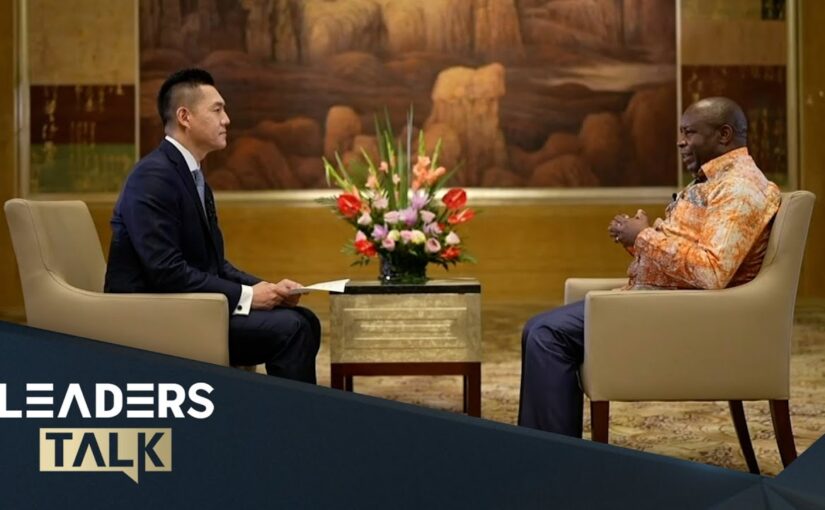In this episode of the CGTN series Leaders Talk, Wang Guan interviews Évariste Ndayishimiye, the President of Burundi. The interview was filmed in Shanghai during the Burundian leader’s recent state visit to China.
Burundi is a small, landlocked country in east central Africa, sharing land borders with Rwanda, the Democratic Republic of Congo and Tanzania. It was colonised by Germany during the imperialist “scramble for Africa”. Following World War I, it was handed to Belgium under a League of Nations mandate and after World War II was made a so-called United Nations Trust Territory, finally winning national independence in 1962.
Burundi established diplomatic relations with the People’s Republic of China the year after it obtained independence, making this year the 60th anniversary of their bilateral ties.
They have been 60 years of fruitful cooperation, leading President Xi Jinping, in his meeting with his Burundian counterpart, to describe the relationship of one of all-weather friendship. For his part, President Ndayishimiye, who was making his first visit to China as president, but who has previously visited the country on a number of occasions, describes the relationship as one of friendship, solidarity and brotherhood. If there is one country, he says, that always stands with Burundi, whether in good times or bad, it’s China, which is always the first to come to his country’s support in times of difficulty.
Whenever he visits China, Ndayishimiye is keen to delve deeply into the lessons provided by China’s development. His ambition is for Burundi to become an emerging country by 2040 and a developed country by 2060. China, he notes, has become a global power in a very short time, so it is possible. He seeks to learn from China by reorganising his own country to work for the people’s well-being.
Ninety per cent of Burundi’s population currently works in agriculture, so this sector is also the foundation of its collaboration with China. Since 2009, under the auspices of FOCAC (the Forum on China-Africa Cooperation), agricultural experts from China have introduced various hybrid rice strains to Burundi, leading to a huge increase in the country’s food production. President Ndayishimiye praises the role of Chinese experts, who “work with our people shoulder-to-shoulder on the ground.”
However, China’s assistance to Burundi does not stop at agriculture, but also embraces such sectors as healthcare, education and infrastructure, including energy, roads and the expansion of the international airport in the country’s largest city and former capital, Bujumbura.
Burundi’s president is scathing about the record and legacy of European colonialism in his country. “Burundi is like a big family, but the colonisers’ strategy was to divide in order to rule over the resistant people.” He contrasts this to China and utterly refutes any suggestion of “Chinese colonialism” in Africa. He has studied Chinese history and the country was itself once a victim of colonialism. A devout Christian, the president invokes words from the Bible when he insists that China does not believe in doing unto others what has been done unto itself. Interestingly, almost the identical words can be found in the sayings of the Chinese sage Confucius. According to Ndayishimiye, the colonial powers are simply judging China by their own standards.
The full interview with President Évariste Ndayishimiye is embedded below.

